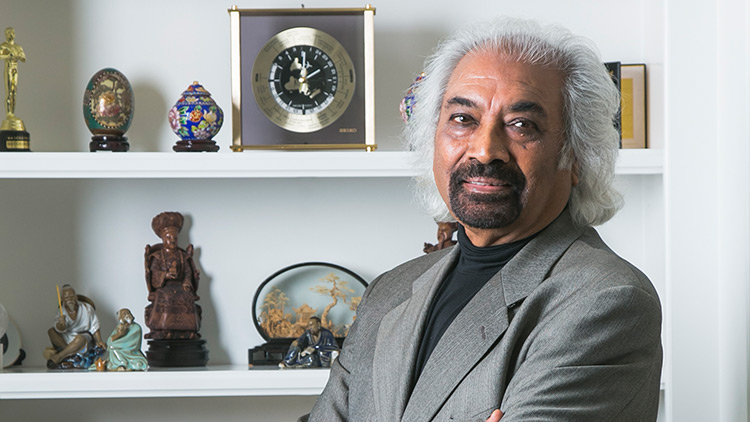
Telecommunications visionary Satyanarayan “Sam” Pitroda (M.S. EE ’66) believes that the world was last designed by the United States some 70 years ago, after World War II, and included the creation of prominent organizations such as the International Monetary Fund, the United Nations, the World Bank, and the World Trade Organization. Also, terms were developed—gross domestic product, gross national product, per capita income—that emphasize areas that should instead be downplayed in importance. Pitroda says that the current design is obsolete because of significant global events that have occurred since WWII, specifically, 9/11, the rise of China and the fall of the Soviet Union, technological progress, and decolonization.
Pitroda is writing a book about his vision for redesigning the world. Some of the key points of his new world design include:
- Practice inclusivity over individualism. “We have designed a world that is too focused on finance and material gain. When we live in an environment of family and friends, we have to learn how to give. The beauty of this world is that everything is different, every tree, animal, and human being; every country, custom, and culture. Diversity is something we have to celebrate.”
- Go beyond human rights to human needs. “When you think of the human ability to produce a huge amount of food, cheap communications, self-driving cars—the needs look very different. When we do have self-driving cars, I won’t need a car, I won’t need car insurance, I won’t need a garage, and I won’t need a parking lot. Technology offers huge amounts of possibility today.”
- Switch from consumption to conservation. “You cannot judge me based on the income that I make. You can’t say that a country is poor because its GDP is poor; it could be very rich in culture or family values. Don’t judge everybody based on money. We print the list of the Forbes 400 richest people, but we never print the list of the Forbes 400 best teachers, best doctors, best scientists, or best nurses.”
- Choose peace over warfare. “We have to focus on nonviolence, and it has to begin at home. Don’t be anyone’s enemy. I may have only 15 minutes, 2 hours, or 2 days with you, so I might as well make the best of it. I choose not to focus on our differences because we are in our journey together for only a very short period of time.”